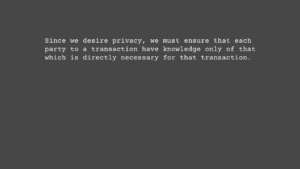ADF International, a global human rights organisation, has issued an open letter urging the European Commission (EC) to address the censorship provisions within the Digital Services Act (DSA).
Signed by parliamentarians, academics, and civil society leaders, the letter highlights major concerns over the erosion of free speech across the European continent and beyond.
French MEP Virginie Joron, a signatory to the letter coordinated by ADF International, raised alarm over the DSA’s scope, stating on X:
“The French digital regulator ARCOM told me they believe the DSA allows them to censor any post anywhere in the world using the DSA.” Her remarks underscore the far-reaching implications of the legislation, which critics argue threatens open discourse.
Dr Felix Böllmann, Director of European Advocacy at ADF International, commented:
“Across the European Union and beyond, we are witnessing a shrinking of civic space. Each week brings new reports of individuals facing censorship or punitive measures for speech that challenges prevailing orthodoxy, whether it is Member of Parliament Päivi Räsänen in Finland or veteran Adam Smith-Connor in the United Kingdom.”
The DSA, supposedly intended to regulate online platforms (e.g., targeting non-EU social media platforms), has been widely criticised for enabling regulatory overreach.
Civil liberties groups have labelled it a “censorship regime,” a “digital surveillance act,” and a “Trojan horse” for pigeon-holing digital spaces. Vague and broad definitions for terms such as “misinformation,” “disinformation,” “hate speech,” and “systemic risks” are riddled with ambiguity and easily abused.
This allows retroactive flagging of harmless posts under ever-shifting national laws, punishing speech that was legal when posted.
While the EC claims the legislation provides “legal certainty” and “greater democratic control,” in reality, it creates a framework that stifles free speech and makes users think twice before posting – compounding a chilling effect on what would otherwise be considered normal discourse.
The Act’s mechanisms allow both institutions and private entities to flag content deemed “illegal,” a term so loosely defined it could flag your mum’s chicken stew recipe as a dire threat to public order.
This broad definition risks retroactive penalties for speech that was lawful at the time of publication, creating uncertainty across the EU’s 27 member states.
“In an era where public discourse increasingly takes place online, the Digital Services Act compounds these concerns. Although the Commission has claimed that the DSA enhances ‘legal certainty’ and provides ‘greater democratic control,’ its current framework undermines free speech,” Böllmann added.
ADF International’s open letter calls for immediate action to reform the DSA, ensuring it doesn’t infringe on free speech, as is currently the case.
The full letter is available at adfinternational.org/campaign/open-letter-dsa.
If you found this article useful, consider sharing it.


